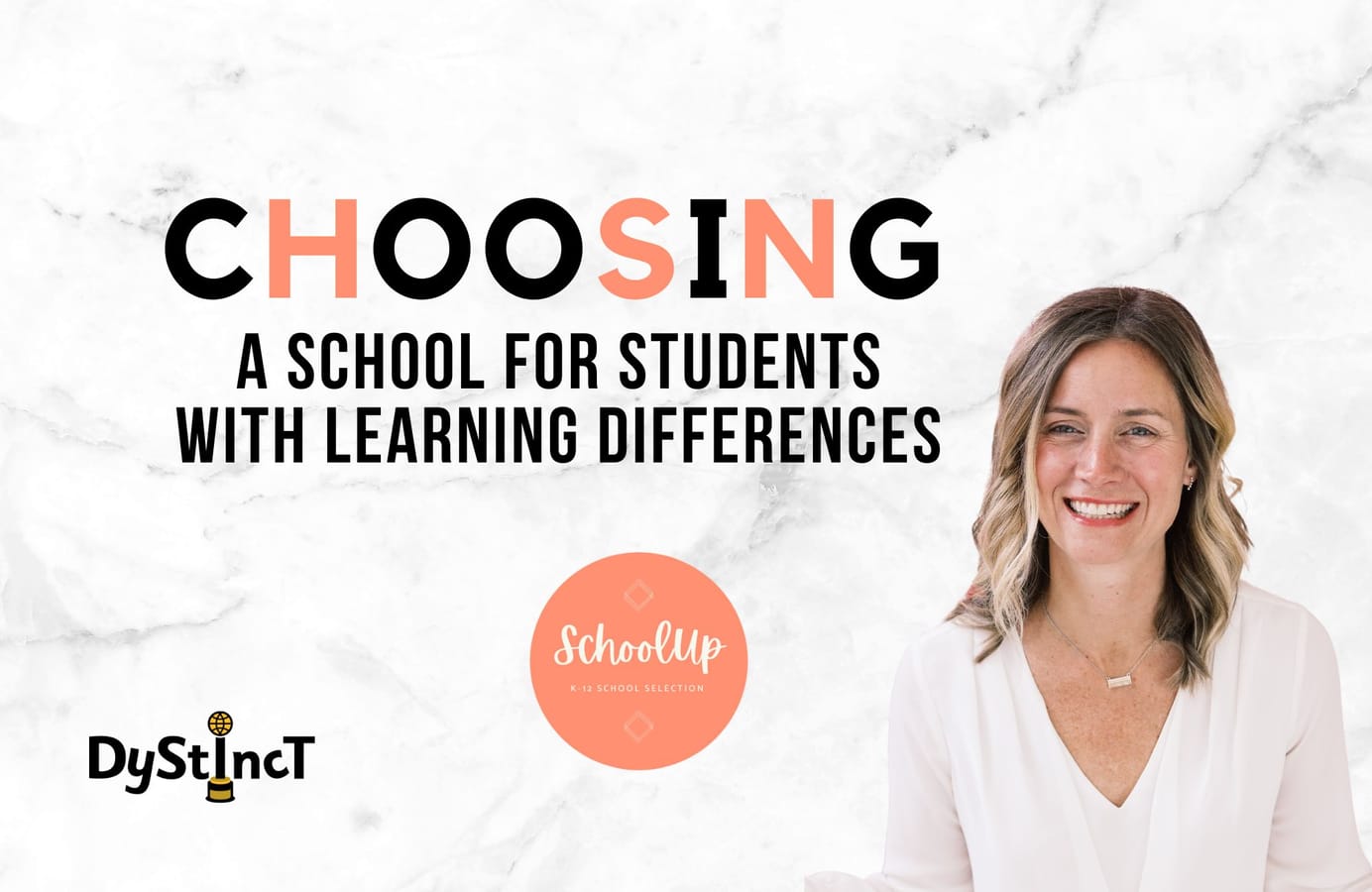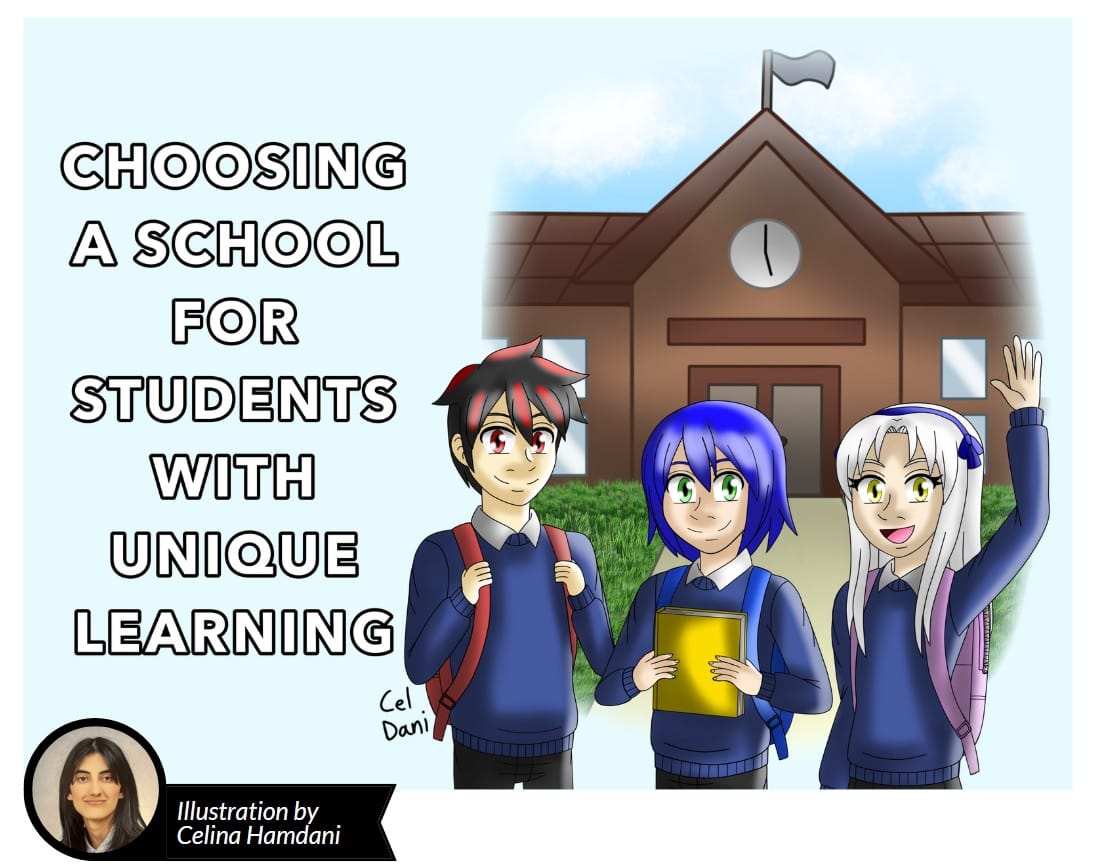
Issue 26: Choosing a school for students with learning differences | Libby Taylor | School Up
Libby Taylor guides parents through the school selection process, emphasising that the best choice for students, especially those with learning differences, is one that fits their unique needs, learning style, and family values.
I get calls daily from confused and concerned parents overwhelmed with all the school options in North Carolina. It's not a surprising feeling, we have a plethora of options. And it isn't just North Carolina. Many areas of the country also have growing school options, from magnet to charter, and a variety of different types of independent schools. Though overwhelming, in many cases, these options can be a blessing to families, especially for students with learning differences.
Wall learn in different ways. And education is certainly not one size fits all anymore. Maybe your current school is not a good fit, or you have a rising kindergartner who you want to set up for success, or maybe you are approaching middle school and thinking about a change. Knowing your options and choosing the right school fit can make all the difference. Here are a few things to think about when choosing the right school for your family.

Look for fit over prestige
Look for fit over prestige
Sometimes, it's hard to overlook the gossip and competition that comes with school selection. But remind yourself, going into this process, that you might not be looking for what everyone else is looking for. It's not a popularity contest. Be sure to focus on what schools best fit your family and not just the ones that seem the most popular. For example, with younger students who have learning differences, it's often more important to find a school that fits their interests and plays into their strengths than it is to find a school with challenging academics. Our children must fall in love with learning first and enjoy going to school every day. Look for the right fit and not just the school with the biggest name. I find it helps to write down your goals and values before starting the process so that you can stay grounded and not lose sight of what is most important.
What to ask:
- What are our education goals for our children?
- What is most important to us in a school?
- What are our academic values?
- Does your current teacher have any advice for how your student learns best?
Know your options
Know your options
Many states offer options such as magnet and charter schools, which are public and tuition-free, as well as virtual programs and a variety of independent schools. Magnet schools are typically part of the broader public system, while charter schools are public but function separately, often using a lottery system for admissions. Private and independent schools charge tuition, and they can be secular or religious.
All these schools can have different instructional models as well. Instructional styles range from highly structured teacher-led classrooms to child-centered classrooms with independent learning. If you know your child doesn't thrive in a traditional classroom, it can be beneficial to explore alternative methods. For example, Montessori and Waldorf schools often have more time outside and less technology. PBL or Project Based Learning methods offer a more hands-on approach in which students learn through doing. Testing can be a source of stress for students, and though public schools often have mandated testing, some independent schools offer less standardized approaches to assessments.
In North Carolina, we even have year-round calendars in which students go to school year-round with a pattern of being in school for nine weeks, then out for three. Many students find these more frequent breaks beneficial. Explore all your options and find out what school types are available to you.
What to ask:
- What type of environment does my child prefer?
- What does your child need that is different from the traditional learning environment?
- What do I know about my student's executive functioning skills?
- How much stamina does my student have for homework?
- What are our family values as they relate to technology in the classroom?
- What schedule works best for our family?
- Does my student need a lot of structure or a lot of independence?
Don't just rely on data
Don't just rely on data
Seeing a school in person is the absolute best way to assess whether it's the right fit for your child. In a data-driven world, it's easy to get caught up in the numbers, but test scores and data can only tell you so much about a school. Experiencing the environment is the best way to get to know a school. It is common for schools of choice to offer tours and open houses, so take the time to visit schools in person. If you have a child with learning differences, make sure to observe the environment and consider your child's sensory experience. And think about "who" a school is by asking questions about their philosophy and culture. It's important to choose a school that will welcome and celebrate your student's unique strengths.
This post is for paying subscribers only
SubscribeAlready have an account? Log in


